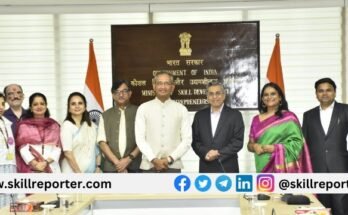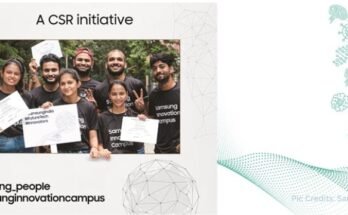Tiruchirapalli : “Universities and higher educational institutions can experiment a student-entrepreneur in residence programme to encourage entrepreneurship through a flexible curriculum,” said K.P. Krishnan, Secretary, Union Ministry of Skill Development and Entrepreneurship, here on Monday.
Speaking at the 16th University Day celebrations at the SASTRA University, Dr. Krishnan who also inaugurated the Project Revere on the occasion, stressed the need for harmonizing knowledge creation with skills and entrepreneurship for socio-economic development.
Project REVERE — Rural Empowerment through Vocational and Entrepreneurially Reliant Ecosystem — is a joint initiative of the TATA Trust and the SASTRA University that aims to train 1,000 socio-economically challenged rural youth through three and six months training programmes to build sustainable livelihood mechanisms through gainful employment or by way of starting own businesses.
Each trainee would be paid a monthly stipend of ₹4,000 and imparted various skill development programmes such as in driving, tailoring, CNC machining, cooking and welding under the project. Dr. Krishnan recalled the entrepreneurial nativity of Indian communities that were active in global trade in the 16th century and wanted universities and other stakeholders to build a robust entrepreneurial network through skill acquisition.
Citing the example of Massachusetts Institute of Technology, Boston, the United States, he said that a study in 2006 estimated that top 25% of the MIT global alumni contributed to three million employment opportunities and created 2.8 trillion wealth which was equivalent to being the 11th largest economy in the world. The entrepreneurship development model of Israel resulted in a sharp fall in unemployment from 9% in 2000 to 4% in 2011.
Universities and higher education institutions must innovate and switch to the employment creation mode for which the governments were extending huge support. Dr. Krishnan also spoke of the convergence of skill initiatives and the dynamic troika – ITIs, polytechnic education and entrepreneurship as a component of public policy.
S. Ramadorai, former Chairman of National Skill Development Corporation and the guest of honour at the programme stressed the need for technology and digital ecosystems for transforming skill development from a start-up to a scaled-up project mode.
SASTRA University Vice-Chancellor R. Sethuraman presented the annual report highlighting achievements during the academic year 2016-17.
Note: News shared for public awareness with reference from the information provided at online news portals.


